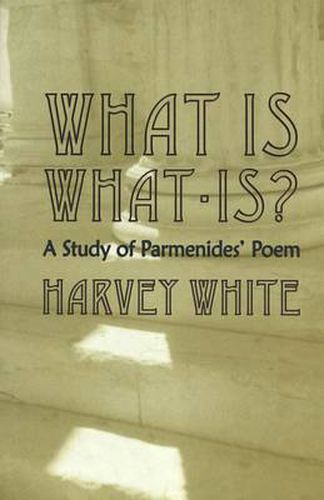Readings Newsletter
Become a Readings Member to make your shopping experience even easier.
Sign in or sign up for free!
You’re not far away from qualifying for FREE standard shipping within Australia
You’ve qualified for FREE standard shipping within Australia
The cart is loading…






This book interprets the poem by the pre-Socratic philosopher, Parmenides, in a way that differs fundamentally from traditional interpretations. While some recent studies show that the poem uses the word is as a copula rather than a substantive, a close analysis of the Greek text shows that Parmenides did not deny the reality of a plurality of sense perceivable objects, but argued that each is an individual homogeneous unity that emerged from a mixture of opposite elements. This means that much of the poem that has been taken to describe a position that Parmenides rejects is, in fact, what he accepts. The book concludes, therefore, that Parmenides was not the radical and revolutionary thinker to the degree he is commonly portrayed to be: he stands within the intellectual transition occurring in the Greek world, moving from the past Homeric mythos into the emerging scientific view of the world.
$9.00 standard shipping within Australia
FREE standard shipping within Australia for orders over $100.00
Express & International shipping calculated at checkout
This book interprets the poem by the pre-Socratic philosopher, Parmenides, in a way that differs fundamentally from traditional interpretations. While some recent studies show that the poem uses the word is as a copula rather than a substantive, a close analysis of the Greek text shows that Parmenides did not deny the reality of a plurality of sense perceivable objects, but argued that each is an individual homogeneous unity that emerged from a mixture of opposite elements. This means that much of the poem that has been taken to describe a position that Parmenides rejects is, in fact, what he accepts. The book concludes, therefore, that Parmenides was not the radical and revolutionary thinker to the degree he is commonly portrayed to be: he stands within the intellectual transition occurring in the Greek world, moving from the past Homeric mythos into the emerging scientific view of the world.